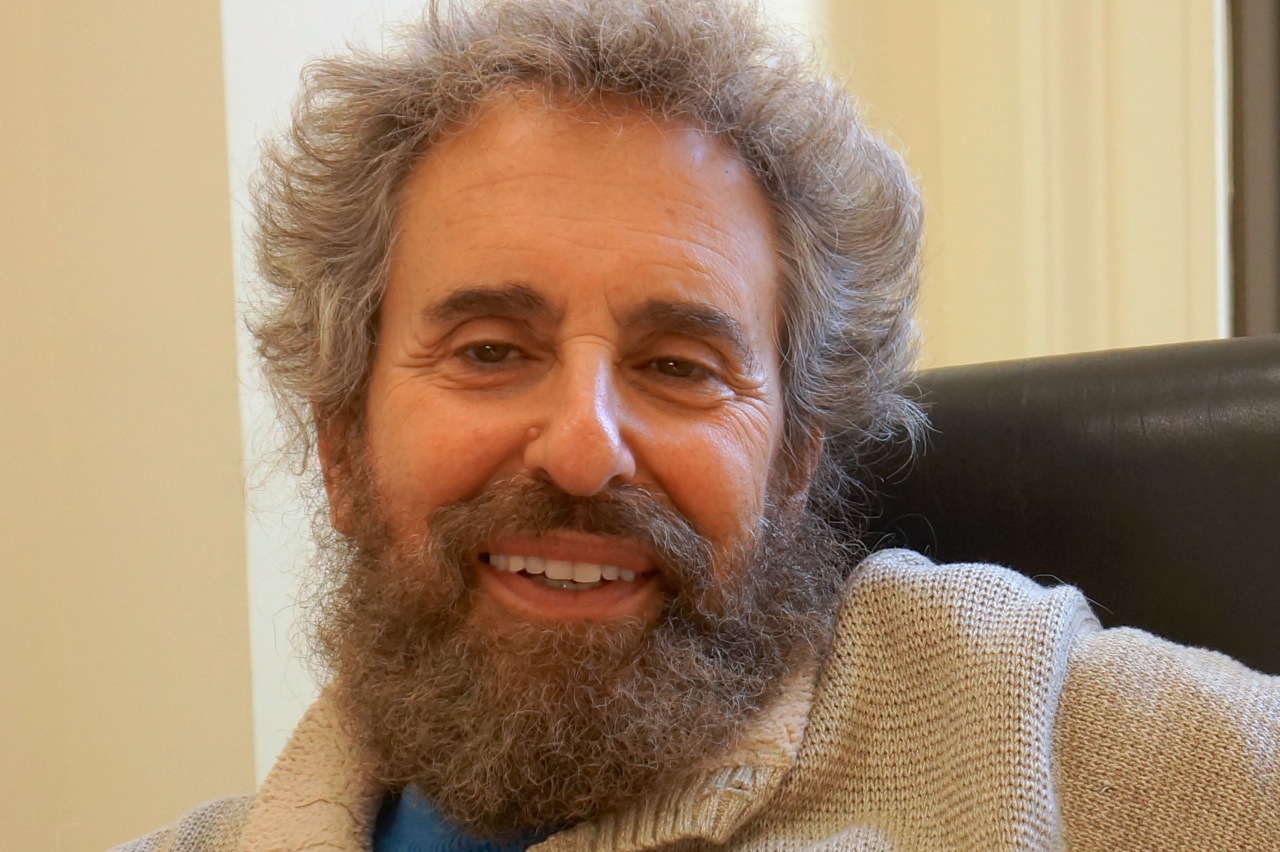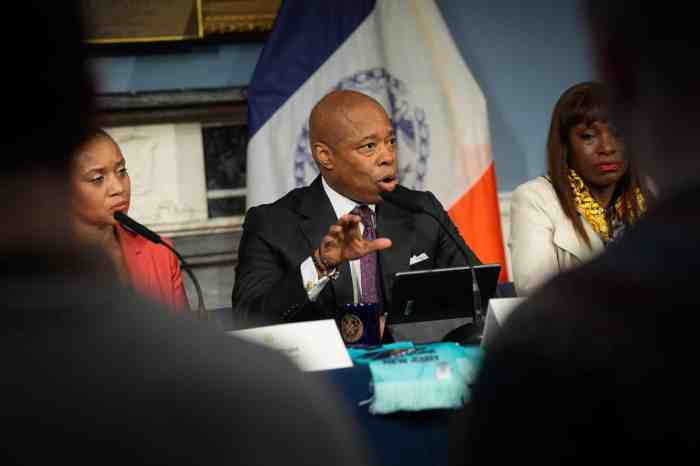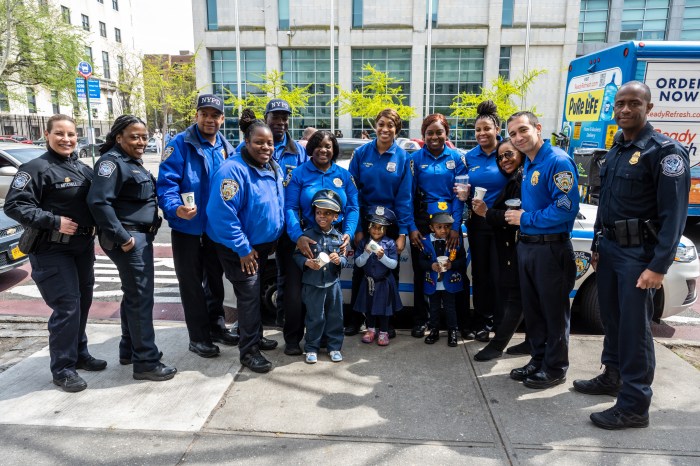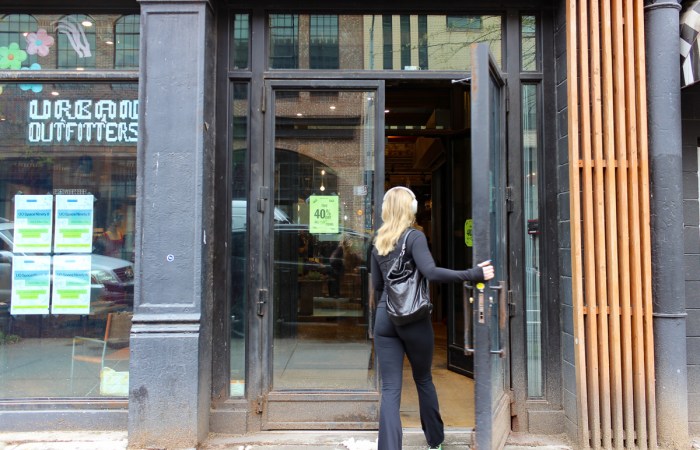
BY SARAH FERGUSON | Going to prison can be a radicalizing experience. So what happens when you take a radical attorney and lock him up in a federal prison camp in northeast Pennsylvania for 11 months on criminal tax offenses?
Not much, according to former East Village attorney Stanley Cohen.
“Prison didn’t touch me. It didn’t change me. It didn’t soften me, it didn’t harden me,” says Cohen, who started a blog called “Caged But Undaunted” during his stay at Camp Canaan in Waymart, PA.
The LES’s most infamous defense lawyer also served three months at a Bronx halfway house and is now doing five more weeks of home confinement at his Upstate New York cabin in the foothills of the Catskills. Cohen, who is in his early 60s, was convicted last April on charges of “obstructing and impeding” the Internal Revenue Service. In essence, the I.R.S. got him for failing to file timely returns from 2005 to 2010, for failing to report some $35,000 in cash transactions, and for running a largely cash business in which he kept slack or no records.
In court, prosecutors alluded to millions of dollars in cash Cohen received from clients, many of them pot growers and smugglers from the Mohawk Nation’s Akwesasne Reservation on the Quebec border.
Cohen insists the notion that he was rolling in the dough is ludicrous. He says his prosecution on tax charges was part of a broader effort of political retribution aimed at silencing a radical defender who has spent the last three decades representing the rights of other radicals, outcasts and the oppressed. It’s a not too preposterous theory, considering that he has represented everyone from Osama bin Laden’s son-in-law and Kathy Boudin of the Weather Underground to East Village squatters and Occupy Wall Street protestors, the leaders of Hamas, Hezbollah members of the Mohawk Nation and the Anonymous hacktivists known as the “PayPal 14.” (Cohen’s former law partner Lynne Stewart was convicted in 2010 of aiding a terrorist by helping her client communicate to followers from prison.) In 2002, he filed suit against Israel, accusing it of war crimes.
“They started investigating me in 1997, for material support of terrorism, because I was involved in a half-dozen battles with them over terrorism cases,” Cohen alleges, referring to inquiries launched over the years by the F.B.I. and Treasury and Justice departments.
“My case was not about taxes,” insists Cohen, who says he took the plea agreement only because the lengthy legal fight was “bankrupting” him, straining his family, and making it difficult to practice law.
“Am I banned from Israel and Egypt and Kuwait because of taxes?” he demands. “Shouldn’t that sort of say something? There isn’t a f—ing federal prosecutor in the United States who believes this is about f—in’ taxes,” maintains Cohen, who had to give up his Avenue D loft when he went to prison.
Prosecutors at the Northern District U.S. Attorney’s Office in Syracuse, where Cohen’s tax case was tried, insist their beef with him was not political. Asked whether the case against Cohen was politically motivated, Assistant U.S. Attorney Richard Southwick responded succinctly: “It was not.”
Cohen is still battling the I.R.S. in civil court over exactly how much in back taxes he still owes. But he was never fined for his tax offenses — a point he considers telling: “Go find another f—ing I.R.S. criminal prosecution in the United States without an order that you must repay a certain amount of money as part of your sentence. We looked. It doesn’t exist.”
Clearly undaunted, Cohen sat down with The Villager earlier this month for a wide-ranging interview in the offices of a Downtown law firm. Cohen says he was hired by the firm to consult on a big pro bono project, just two days after he entered the halfway house.
Although Cohen’s law license is currently suspended, he has not been disbarred. Rather, his law license is now “pending review” — meaning it is under the discretion of the New York Bar Association whether it will be reinstated once his full sentence has been served.
***
VILLAGER: So it’s not a given that you will lose your law license?
STANLEY COHEN: The haters are going around saying I’ve been disbarred, but it’s not true. In fact, there are those who believe that it’s highly significant that I wasn’t disbarred. There are those who believe the grievance committee sees — “There’s something going on here.” (Cohen moves in conspiratorially and casts a wink.)
V: So you can still help prepare legal cases?
S.C.: If your license is suspended or pending, you can’t even practice until it is resolved. But I can still be a consultant. I can’t give legal advice — which I’m not — and I can’t go into court. But I can research, and I can write, and I can set up pro bono projects.
V: What was it like in the Big House?
S.C.: I did 10 months and three weeks in a prison “camp” that was very much like a f—ing Boy Scouts barracks. It was a camp, which is no bars, no cells, no barbed wire, no keys, no guns. One hundred twenty men in a bunkhouse with communal showers and communal bathrooms, making 12 cents an hour. And then we’re attached to one of the ugliest maximum-security prisons in the United States, filled with about 1,000 guys doing at least 20-year sentences, and 500 doing life without.
[Cohen’s blog includes the interviews he did with his fellow prisoners, some living in the camp and others he encountered when he worked the red-eye shift at Canaan’s maximum penitentiary, packing lunches during a three-week lockdown.]
V: And how did prison deal with you as a radical attorney?
S.C.: I was designated a C.M.I., which is a Centrally Monitored Inmate. Within three days of my arrival, I had to sign a document which identified me as a C.M.I., that said quote unquote, “Because of inmate Cohen’s high public persona, his career of controversy, and the access to the media and the cases he’s handled, the Bureau of Prisons has decided he has to be a monitored inmate.” They wanted to keep me under their eye as much as possible; so when I got there, I was immediately assigned to the plumb librarian job of the law library. There were like 50 guys waiting to get the librarian job — [but] they gave it to me because it was 20 feet from the administrative offices, and people could walk by day in and day out and see me.
***
While in prison, Cohen says he received more than 100 interview requests — including one from CNN’s Fareed Zakaria. Zakaria wanted to follow up on Cohen’s foiled efforts to negotiate with spiritual leaders of ISIS and Al Qaeda to intercede to obtain the release of American hostage Peter Kassig, who was beheaded by ISIS last November — just before Cohen reported to prison. The British Guardian did an 8,000-word series on Cohen’s role in the hostage negotiation, though the story did not receive much play here in the U.S. Unfortunately, according to Cohen, the Bureau of Prisons has a rule forbidding any filming or taping of interviews, so the CNN interview got scrapped.
Cohen says he was also visited by London playwright Chris MacDonald, who is writing a play about Cohen, and who spent a weekend “taking notes up his arm” while being monitored by the acting warden of the camp.
In addition, Cohen taught three terms of law classes to his fellow inmates, covering topics ranging from civil rights and American government, to the revolution that toppled apartheid in South Africa, the Israeli/Palestine conflict, and human rights law.
“I did serious stuff,” shrugs Cohen. “My classes were volunteer, they were at night, you got no credit for attending. And yet they regularly drew attendance of 30 people — about a third of the camp,” he adds.
“One of the guys who attended all my classes told me, ‘I love your classes. I feel like we’re in college. We’re like adults, like men. We discuss. We’re not dumbed down, we’re not f—ing idiots.’”
***
V: What was your hardest thing about being behind bars?
S.C.: Nothing about prison was hard for me — zero. There’s isolation and despair, there’s dirt and boredom, and there’s periodic violence — sometimes psychic, sometimes physical. None of that was a big deal. The biggest problem, especially in camps, is you’re powerless to take care of family problems. You get your periodic phone calls and visits; you get a certain number of e-mails now in prisons. But it’s not like your wife or husband or son can just pick up the phone and say, “I’m having a problem,” and you intervene and then they don’t have to worry about it… . All you can say is, “It will be all right, you have to deal with it.”
Low-security prisons and camps are designed to hurt you by hurting your families. The prison doesn’t hurt you. The camps themselves are a f—ing joke. Sixty percent of every man and woman in federal prison in the United States has been convicted of a nonviolent offense and/or poses no risk of danger to the community. They do not have to be in prison. The whole purpose is to punish the person, and the greatest retribution is meted out to wives, husbands and children on the outside. That’s where they get you, that’s where they f— you up. I have a strong partner of many years, but she had problems.
V: How was the food?
S.C.: Terrible. I’m a vegetarian. I had a friend of mine [in prison] who made me salads. There are exchange systems. I lived on a lot of oatmeal, a lot of nuts. I didn’t eat in the camp cafeteria at all the last five months. I would, however, go in two meals a day and get meals for friends who were big. I mean, breakfast was at 6 a.m. every day, lunch at 10:45 and dinner at 4. Who wants to eat lunch at 10:45?
I went in heavy because I’d been traveling a lot and hadn’t been taking care of myself before I went to jail. So I lost 23 to 24 pounds — roughly two pounds a month, and got back to my normal weight.
***
The Villager reached out to Cohen again over this past weekend, following his release from the halfway house, to ask how he was enjoying his relative freedom, under home confinement in his Catskills retreat.
Cohen said he was battling a terrific chest cold but seemed otherwise nonchalant about it all. He said he was keeping busy cleaning up the lawn, writing his blog and catching up on Turner Classic Movies with his longtime partner, artist Joni White. According to the terms of his sentence, he is now allowed to travel domestically related to his work and things like health appointments, but must spend each night at home.
Ever the troublemaker, Cohen says he’s been blasting tweets about the state of Gaza, promoting B.D.S. campaigns against Beyoncé and J. Lo and Springsteen because of their plans to play Israel, and of course, harping on the current trainwreck of a presidential election. (He’s got more than 20,000 Twitter followers.) Since he got out, he says he’s received a half-dozen death threats via Twitter and online from “white national socialists” who are pissed about something he wrote about Trump and Sanders.
***
V: Aren’t you at all worried about putting yourself back in the government’s — or your haters’ — crosshairs?
S.C.: Let us be very clear about this. Serious political lawyers put ourselves in the firing line all the time. It is what we do. Have there been times when I said f— you to the beast and exposed myself and let myself be vulnerable? Of course. Comes with the turf.
The government spent five years looking for hidden proceeds, because they are used to scammers and a–holes. They aren’t used to people like me. They’re not used to political fighters. They assumed that Stanley Cohen was getting rich because of the work he did — that Stanley Cohen was doing it for the money. It’s all nonsense. So they spent five years looking for offshore bank accounts and hidden dollar amounts and stock portfolios, and found nothing, zero, because there was nothing.
What they didn’t get — what they really didn’t get — was I didn’t give a f—. Who gives a f—? Was I reckless in certain regards? Absolutely. Did I not give a f— about some of their rules and regulations? Abso-f—ing-lutely. Did I see them as being intrusive? Absolutely. In my sentencing memo, it says, “Stanley Cohen has to be one of the best defense attorneys around… There’s no doubt he is an indefatigable force on behalf of his clients. But he’s a lousy businessman.” Really?
V: So what’s next?
S.C.: I’m thinking about bank robberies… No, seriously, what am I going to do? Even once I get my license back — and I’m convinced I will — my days of running a major national criminal defense firm are done. I will continue doing international human rights work — maybe political cases, terrorism cases. I expect to become an expat and live abroad — essentially reversing the past 20 or 25 years of living in the United States and traveling abroad three or four times a year. I will now live abroad and travel to the United States three or four times a year. I’ll reverse it.
V: Any idea where you’ll go?
S.C.: My partner has agreed that there are a certain number of countries that she will go live with me in. She’s an artist, she’s got a gallery, a small studio in Florida which she wants to maintain. We’re looking in the Gulf States somewhere, we’re looking in Lebanon, where she and I have been. We’re looking in South Africa… The countries I am thinking about are the countries that are very vibrant and in flux, in one way or another in a state of revolution. So they are involved in human rights struggles.
V: So you’ll pick up where you left off abroad?
S.C.: Look, I represent some very serious people. And I have been aligned with some very serious political movements for many years. And I have been a consultant to foreign governments. So I could do this tomorrow — never pick up a law book, never cross-examine a witness, never step into a courtroom again — and continue. I’ve got teaching offers in a half-dozen countries that I could do. I could be a consultant in many places.
Two weeks ago, when the South African Muslim Lawyers Association tried to get Shimon Peres arrested there, I was a consultant in that case. I was part of the strategy that — well, it didn’t work at this point, the special prosecutor said the case was not likely to prevail — but I was part of that.
V: But will you keep a place here?
S.C.: Oh, I’m not giving up the cabin. We want to look for a place on the Lower East Side — just to stay connected. Something small, one bedroom.
V: Seriously? You can afford to rent on the LES after the case just bankrupted you?
S.C.: Yeah. We’re gonna look.

















